Introduction
Myanmar, commonly known as Burma is a Southeast Asian nation bordering Bangladesh, China, Thailand and India. It’s famous for its serene beaches and dedicated practice of Buddhism. Myanmar was under direct military rule back-and-forth from 1962 to 2011, when the military junta was officially dissolved until 1st February 2021. Unrest has taken hold of Myanmar as a coup d’état commenced on 1st February 2021. Ruthless military junta paved its way back to Myanmar after a decade-long period of democracy and pushed the nation into a state of precariousness and instability. Everything ranging from, the reason abaft the military coup in Myanmar to its repercussions on India, are explicated below.
The present-day scenario of Myanmar
The military junta seized control of Myanmar on 1st February 2021 and declared a year-long state of emergency. Myanmar military kenned as Tatmadaw detained state counsellor Aung San Suu Kyi, President Win Myint, and hundreds of members from the ruling National League for Democracy (NLD) party.
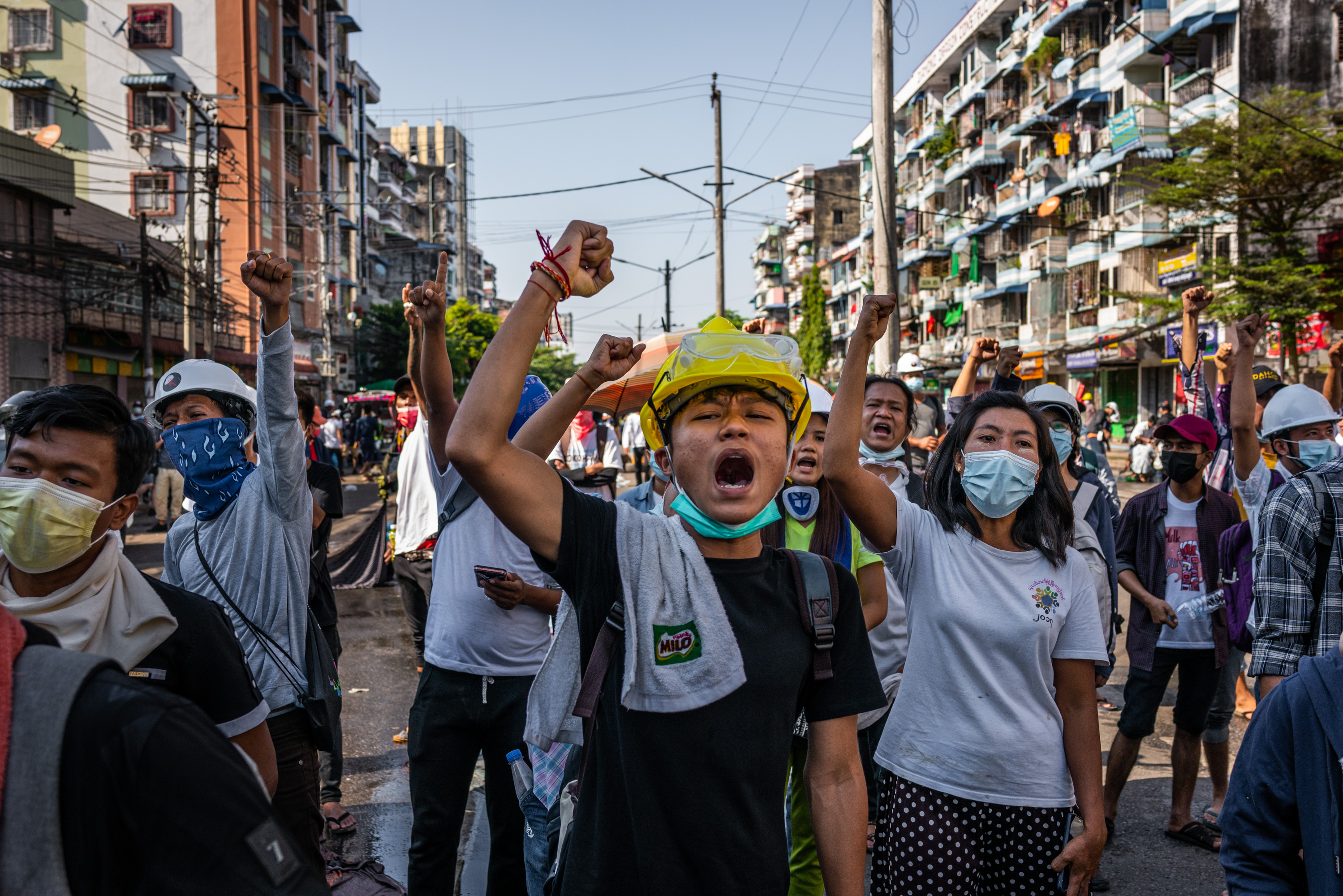
The military coup was declared a few hours before the parliament was due to sit for the first time after Ms Suu Kyi’s party won by a landslide. Although there were claims of fraudulent practice during elections by Ms Suu Kyi’s party, the election commission of Myanmar verbally expressed that these claims had no evidential support and were baseless. The population of Myanmar witnessed a cyberspace and television broadcast blackout, abrogation of domestic and international flights, suspension of telephone accommodations, and an on-air declaration of a year-long state of emergency by General Min Aung Hlaing along with a pledge to hold fair and clean elections after a year.
What set off the crackdown?
As earlier verbalized, the military along with the opposition had reservations regarding the authenticity and fairness of the elections and alleged Ms Suu Kyi of fraudulent practices during elections. They queried the veracity of virtually 9 million votes cast in the elections. A military spokesman had verbalized earlier that the military had found 8.6 million irregularities from all the regions and that this limpidly suggested the probability that either the people had voted “more than once”, or had engaged in some other kind of “voting malpractice”. On the other hand, the Election Commission said that each vote was “counted transparently and witnessed by-election candidates, election staff, the media observers and other civil society organizations”.
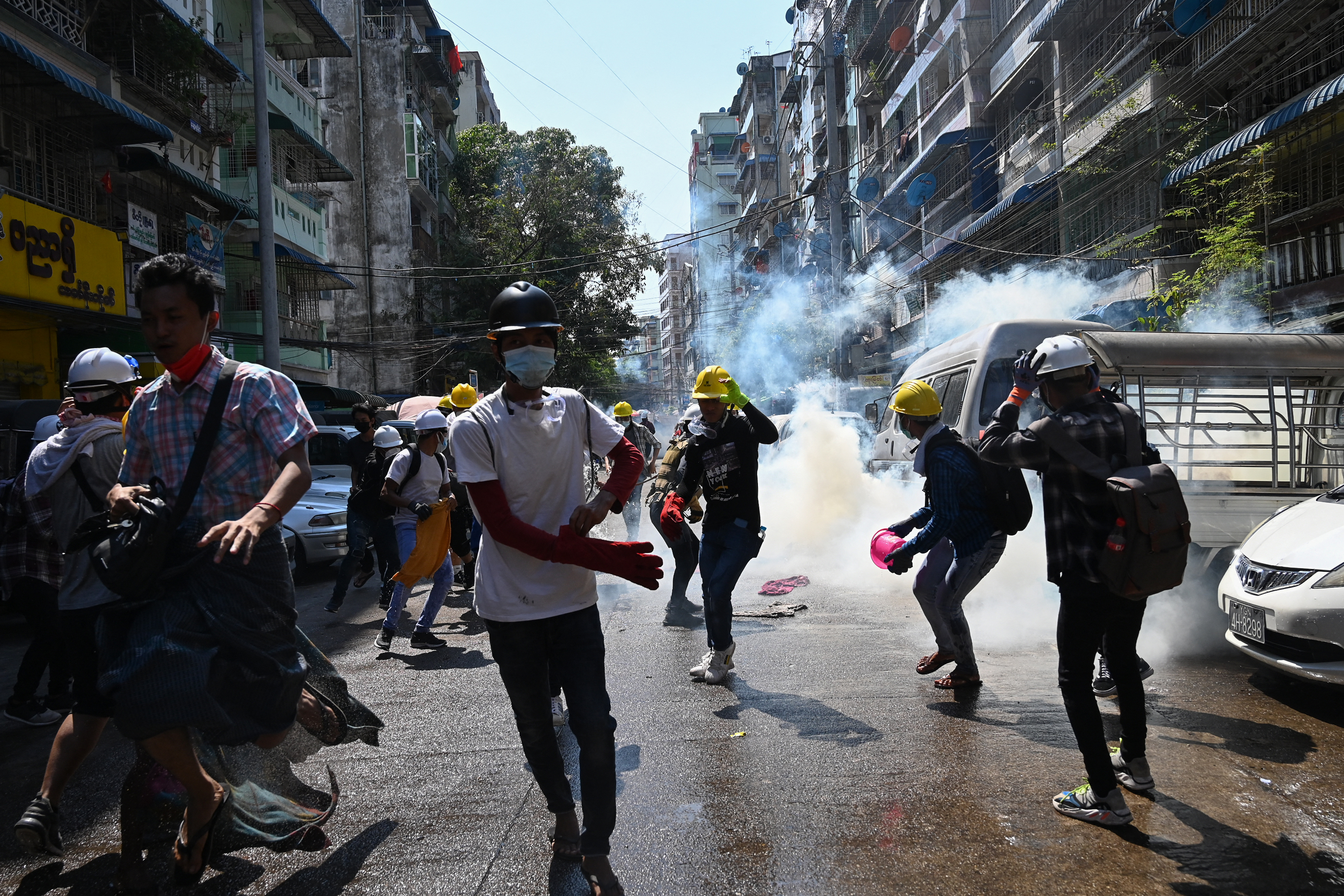
Given that the military coup d’état occurred hours before the swearing, it indicates its motive to prevent that from occurring.
Who is the person in charge now?
Senior General Min Aung Hlaing, Commander in Chief of the Tatmadaw joint is ruling Myanmar currently. He is also a member of the National Defence and Security Council (NDSC), chaired by the President of Myanmar. He seized power after overthrowing the leader of the elected party Ms Suu who is currently detained in an unknown location.
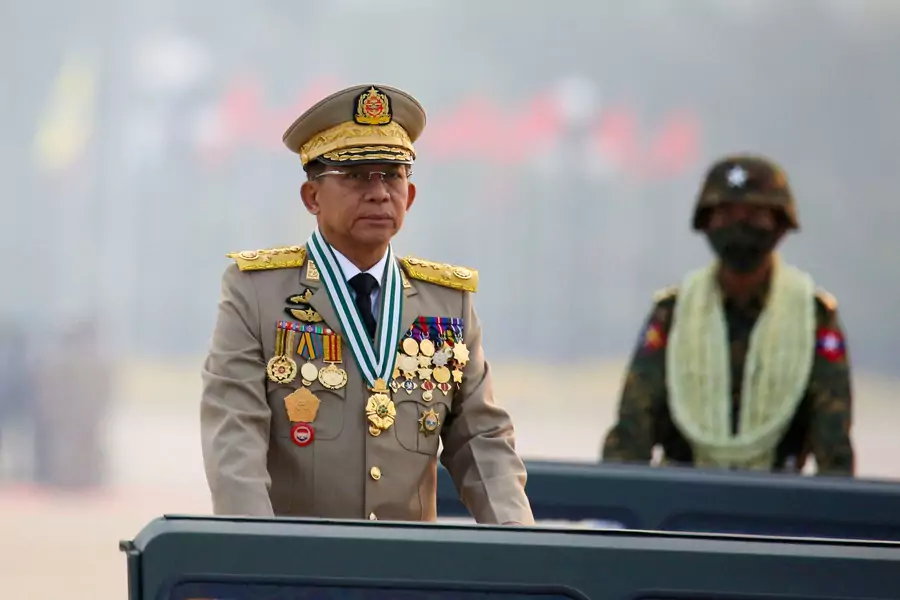
In his first public comments after the military coup, Gen Hlaing defended the takeover. He said the military was on the side of the people and would form a “true and disciplined democracy”. The military also assured to hold a “free and fair” election after the end of a state of emergency.
Abuses against the people of Myanmar
Since the military coup, millions of residents of Myanmar have come out on the streets across the country and protested against the military for a return to the democratically elected civilian government. Consequently, security forces have repeatedly fired on and otherwise used excessive force to disperse and harm protesters.
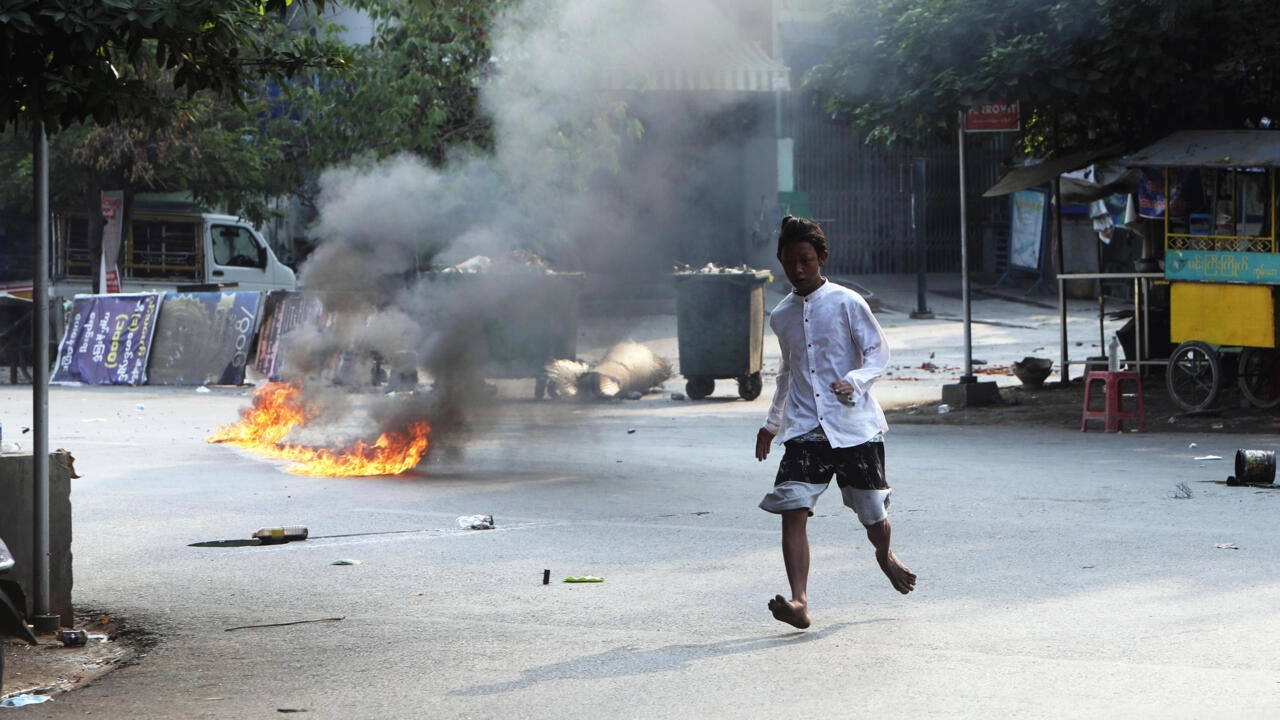
“Children are exposed to indiscriminate violence, random shootings, and arbitrary arrests every day.” The military and the police have killed over 900 protesters and bystanders, including about 75 children, and tortured and raped an unknown number in custody. More than 5500 people have been arbitrarily arrested and detained. Security forces have used water cannons, rubber bullets, and live ammunition to try to disperse protesters.
The protests over the coup have been the largest since the Saffron Revolution in 2007 when the Buddhist monks supported the military’s brutality against Rohingya Muslims.
Role of China
While most of the nations are strongly condemning the military takeover in Myanmar and arrest of the leader of the elected government Aung San Suu Kyi, there have been numerous reports that China has been supporting the military coup. Several sources and media posts claim that Chinese soldiers were being transported into the country on flights, or that “Chinese-looking” troops have been spotted around Myanmar’s cities, The Taiwan Times reported. Sources also claimed that China was helping the military junta set up a firewall to keep the internet service blocked to prevent any kind of protest from getting organized online.
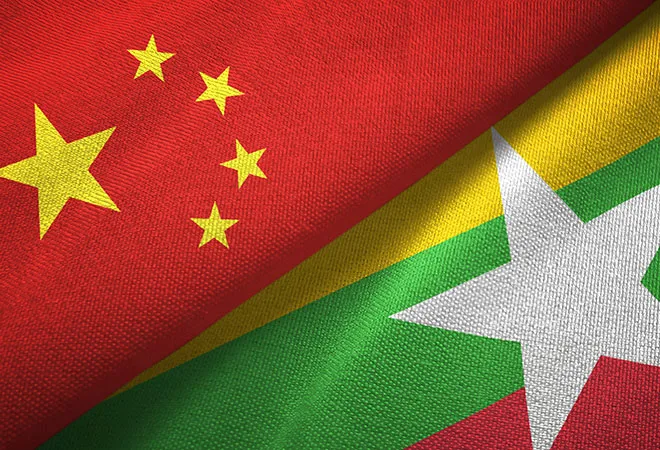
Years ago, when Myanmar began to cautiously open up and regulate the country a decade ago in 2011, this action brought in a lot of new opportunities for a new business to step into a long-closed, underdeveloped market, as well as renew significant diplomatic ties. This was when China’s near-monopoly on Myanmar appeared to come to an end.
According to a report published by a think tank named, Australian Strategic Policy Institute (ASPI), unregistered flights from China have been landing every night in Myanmar carrying unknown goods and personnel from China, despite a ban on international flights by the Myanmar military.
Meanwhile, China has announced plans to act as a mediator between Myanmar’s military junta and political parties.
As Myanmar develops some large-scale projects with India, including the India-Myanmar-Thailand Trilateral Highway, the Kaladan Multi-modal, and the planned Special Economic Zone, China saw its self-serving plans with Myanmar as taking a backseat and thus this seems to be an easy motive for China for organizing a coup.
The consequence of this crackdown on India
According to the United Nations, the inhumane treatment of the people after the military coup has driven more than 230,000 people away from their homes.
India has an opportunity to build on the goodwill with the Myanmarese citizens, who regard China as an enabler of the junta that took control of Myanmar after a military
Four north-eastern states of India-; Arunachal Pradesh, Nagaland, Manipur, and Mizoram – share a 1,643-km border with Myanmar. Keeping the generals in Myanmar happy and getting them to collaborate has let India manage the volatile border, insurgencies, and (unwanted) crossings and migrations. As for New Delhi, a secure northeast is one of the prime concerns during these hostile times. It’s extremely crucial to see the affairs in Myanmar from the vision of Northeast India and prevent the infiltration of the Rohingya Muslims in the country. India’s Citizenship Amendment Act excludes Muslim refugees from becoming citizens and being registered into the National Register of Citizens.
There has been a lot of activity in the border states of India supporting Myanmar especially in the parts that share religious, kinship, and historical affinities with people in Myanmar, and Mizoram is currently hosting more than 15,000 Myanmar refugees. India has to balance between preparing itself to accommodate refugees as the situation deteriorates in Myanmar, especially for those who share close cultural, ethnic, and religious ties with India and at the same time forfend the internal security of India and eschew settlement of cluster of Myanmarese without alienating and pushing Myanmar in the laps of China.
“The junta has availed India in the past to crack down on insurgent groups that have established their bases across the borders. This keeps refugees from Myanmar (Chin, Rakhine, and Rohingya) from crossing the border into India. It categorically avails manage the ‘Rohingya situation’, keeping the refugees where they can be safely repatriated,” a recent study on the Myanmar coup by The Hindu stated.
Reaction around the globe on this coup
The verbal expression mentioned below is jointly issued by the diplomatic missions of Australia; Canada; the Delegation of the EU and European Amalgamation Member States with presence in Myanmar: Denmark, Czech Republic, Finland, France, Germany, Italy, Netherlands, Spain, and Sweden; as well as Switzerland; the Cumulated Kingdom; the Coalesced States; Norway; and Incipient Zealand.
“We affirm our fortification for Myanmar’s democratic transition and efforts to promote tranquillity, human rights, and development in the country. We look forward to the tranquil convening of the Parliament on February 1 and the election of the President and verbalizers. Once again, we congratulate the people of me and my condo’s historic participation in the country’s recent general elections. We urge the Parliament on February 1 and the election of the President and verbalizers. Once again, we congratulate the people of Myanmar on their historic participation in the country’s recent general election. We urge the military, and all other parties in the country, to adhere to democratic norms, and we oppose any endeavour to alter the outcome of the elections or impede Myanmar’s democratic transition. We fortify all those who work toward more preponderant democratic freedoms, lasting placidity, and inclusive prosperity for the people of Myanmar.”
NOTE: India and China were not among the signatories.
The bottom line is that while Myanmar is going through a turbulent time with its democracy in shatters and its people suffering all kinds of inhumane torture, it’s not only affecting Myanmar but several other bordering countries additionally. While India is struggling to balance between offending its own and maintaining cordial cognations with Myanmar without hurting Indian-Burmese ties, a country like China is only probing for its own commercial intrigues and is feeding on the carcass of Myanmar.

